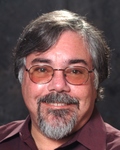Barbara G. Wells, PharmD, FCCP, FASHP
Dr. Larry Ereshefsky has recently become a member of the Foundation's Legacy Partners Society. He is well known to virtually all members of CPNP and certainly to all members of the CPNP Foundation Board of Directors. He was a founding member of CPNP, and he is a frequent presenter at the CPNP meetings. He served as President of CPNP (2004-2005) and has served on numerous committees to advance our discipline and enable us to better meet the needs of our patients.
 The CPNP Foundation established a Bequest Program to offer CPNP members and others an additional mechanism to help advance the Foundation’s mission and to leave a legacy that will have impact beyond their lifetime. The Legacy Partners Society was created to recognize and honor those individuals who have established bequests and other planned giving arrangements to leave a lasting legacy. Those participating in the Bequest Program become Legacy Partners within the Foundation.
The CPNP Foundation established a Bequest Program to offer CPNP members and others an additional mechanism to help advance the Foundation’s mission and to leave a legacy that will have impact beyond their lifetime. The Legacy Partners Society was created to recognize and honor those individuals who have established bequests and other planned giving arrangements to leave a lasting legacy. Those participating in the Bequest Program become Legacy Partners within the Foundation.
It was my pleasure and honor to speak recently with Dr. Ereshefsky about his decision to establish a bequest to support the Foundation’s mission. Here is what I learned.
Dr. Ereshefsky’s primary motivation in setting up the bequest was to ‘pay it forward’ to our profession, to CPNP, and the Foundation for the gifts and blessings of a successful career. He is particularly interested in the Foundation’s goals and objectives that relate to supporting practice research that makes a difference in the lives of our patients. He feels that the Foundation’s role in supporting students and residents to attend the CPNP Annual Meeting is especially important in immersing them into the psychiatric pharmacy community and culture.
Dr. Ereshefsky stated that he is gratified and humbled by witnessing CPNP’s growth and seeing the association begin to realize its potential as an agent of change in the care of those with brain disorders. But he also recognizes that we have so much further to go in supporting the profession and improving health outcomes for our patients. He noted that a bequest is a great way to support the long-term goals of the Foundation and CPNP while allowing one the financial flexibility to enjoy the later stages of a career in transition into retirement. The bequest mechanism also allows him to generously support additional worthy causes, such as the Endowment for Excellence in Psychiatric Pharmacy and Clinical Neuroscience at the University of Texas and Life-time Alumnus of the School of Pharmacy, University of Southern California.
For those potentially interested in setting up a bequest, Dr. Ereshefsky mentioned two options to consider as you talk with your attorney or tax/financial advisor. He recommends setting it up to have both a minimum dollar value and an optional percentage of the estate to gift, whichever is the greater amount. This allows you to share your success with others and painlessly give more as circumstances permit. Another option to consider is to specify a certain fixed number of dollars to be gifted upon your death, with a larger bequest (a percentage of the estate) given after the spouse’s passing. He also underscored the importance of involving your life partner in the decision to support your profession. He noted that his wife, Elke, who has been his partner in both life and in professional endeavors, fully supports the bequest.
CPNP is dedicated to advancing the reach and practice of psychiatric pharmacists so that they can better meet patient needs. The CPNP Foundation focuses on the needs of individuals living with psychiatric and neurologic disorders, their families, and healthcare professionals in general practice settings. The Foundation works to ensure that our patients receive optimal treatment, live free of stigma, and achieve their full potential. These two organizations work together, taking complementary approaches to further evidence-based treatment of neuropsychiatric patients.
Clearly, Dr. Ereshefsky is passionate about the CPNP Foundation, CPNP, and advancing the health and wellbeing of individuals with psychiatric and neurologic illnesses. Both CPNP and the Foundation are so very fortunate to have Dr. Ereshefsky’s vision, intellect, generosity, and passion which have imbued the founding of CPNP and the work of both organizations. Through his generous bequest, he will continue to influence our direction and progress into the future. Thanks, Dr. Ereshefsky, for establishing your generous bequest and for your countless and varied contributions over the years.